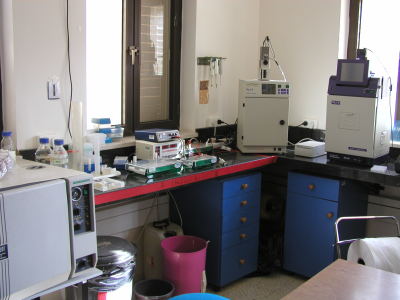The research involves isolation and identification of new strains of
entomopathogenic nematodes from Palestinian territories, following a study of
their biological characteristic; such as infectivity, heat tolerance, and
desiccation tolerance. In addition to the conventional crosses method, the
identification employs restriction fragment length polymorphism (RFLP) of
internal transcriptase spacers.
The project aims at developing
appropriate strains of entomopathogenic nematodes for the control of the white
grub Maladera matrida and other soil-borne insects. Ten straits of such
nematodes have so far been isolated and identified. Characterization of their
biological traits is in progress.
Development of a regional viral indexing and certification program for plant propagation
materials in the Middle East.
The project aims at developing standardized, sensitive methods for identifying the major viruses of tomato,
potato, banana, grapevine, and stone fruits. The techniques employed in this
project include: non-radioactive molecular hybridization (Dig labeling),
print-PCR, Immuno Capture Reverse Transcription PCR, Print Capture Reverse
Transcription PCR, Reverse Transcription PCR, Double Antibody Sandwich ELISA,
PCR-ELISA and others.


